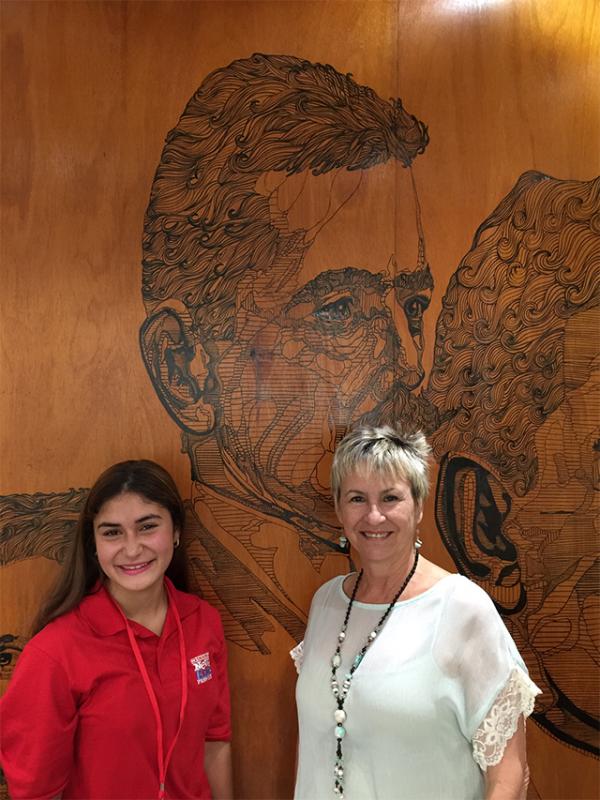KID REPORTERS’ NOTEBOOK
The Magic Behind Words


Lara and teacher Marialina Segurola in front of a portrait of de Diego at the Saint John's School library.
In Puerto Rico, April 16 is a national holiday in honor of José de Diego, who was born in 1866. A poet, an orator, and a statesman, de Diego fought for Puerto Rico's independence from Spain. From 1493, when Christopher Columbus claimed the island, until 1898, Puerto Rico was a Spanish colony. Today, it is a U.S. territory.
I have the privilege of attending Saint John’s School in San Juan, where de Diego’s great granddaughter, Marialina Segurola (pictured), teaches. “It’s amazing to be related to him,” Segurola says of her famous ancestor. “I chose to teach Spanish because of him.”
In her class, Segurola teaches about her great grandfather. Each year, on José de Diego Day, she brings in a love letter that he wrote to a woman named Laura, who is the subject of one of his most famous poems. Segurola has donated many of the poet’s other belongings to Puerto Rico’s Institute of Culture.
A VISION OF PEACE
The students at my school are proud to know someone related to de Diego. Each one views his life and poetry differently.
“The poem 'A Laura' is my favorite because he puts his heart into it,” says Felipe Albors, 12. “It’s still one of the most profound love poems in Puerto Rico.”
Lorraine Sanabria, 13, likes a poem called “Pitirre,” which is the Spanish word for kingbird, since it evokes the beauty of the natural world. “To me, nature stands for peace,” she says. “If you have peace in your life, you can accomplish anything.”
For Pedro Rodriguez, 13, de Diego is a hero because of his role in establishing Puerto Rico’s political freedom. “He taught us about fighting for what we want,” Pedro says. “Without him, Puerto Rico would not be the same.”
People honor de Diego for many reasons. Maybe that is the magic behind his words, which can be put into different forms and meanings, like magic. As author Terry Brooks says, If you don’t believe in the magic of words, your words will not be magical.
